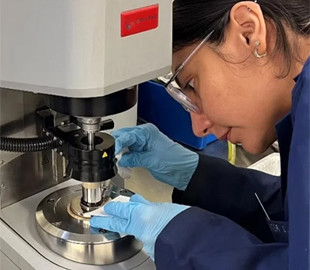
A section of highway 1.5 hundred meters long became a testing ground for another innovative use of recycled plastic in asphalt pavement: intensive traffic confirmed the quality of the material.
In Last October, Granite Construction paved a stretch of highway in Elk Grove, near Sacramento. On a stretch of 152 meters, the road service used melted plastic in a mixture of viscous asphalt material from used printer toner cartridges.
Granite embarked on such an experiment in cooperation with scientists from the University of Nevada, Reno. There they developed “modified toner polymer” or MTP. This research project is reported by machineryasia.org.
It is estimated that the amount of toner powder and cartridges that end up in US landfills ranges from 9,000 to 25,000 tons per year. UNR notes that because they are usually classified as e-waste, they are difficult to recycle.
200% Deposit Bonus up to €3,000 180% First Deposit Bonus up to $20,000The Highway 99 project, the university estimates, recycled enough toner cartridges to fill 450 large wheelie bins. According to UNR, the use of polymer liquid asphalt can reduce carbon dioxide emissions by 5% and divert 90.7 kg of plastic from landfills for every ton of asphalt produced.
“Plastics are not the same, but toner cartridges are it is a permanent homogeneous product. Cartridges with toner are better suited for the modification of the binder material due to its low melting point and better elasticity than ordinary hard plastic”, – noted Eli Hadj.
During the tests the test site showed no signs of cracking or rutting despite heavy truck traffic during intense heat and cold temperatures. The dam break that flooded Highway 99 happened to be in a low-carbon plastic lot. Water also did not cause damage.
The results of the UNR laboratory show that asphalt components made of such material have increased stiffness and viscosity. Such a mixture can be used in any asphalting project, from highway construction to repair work.

